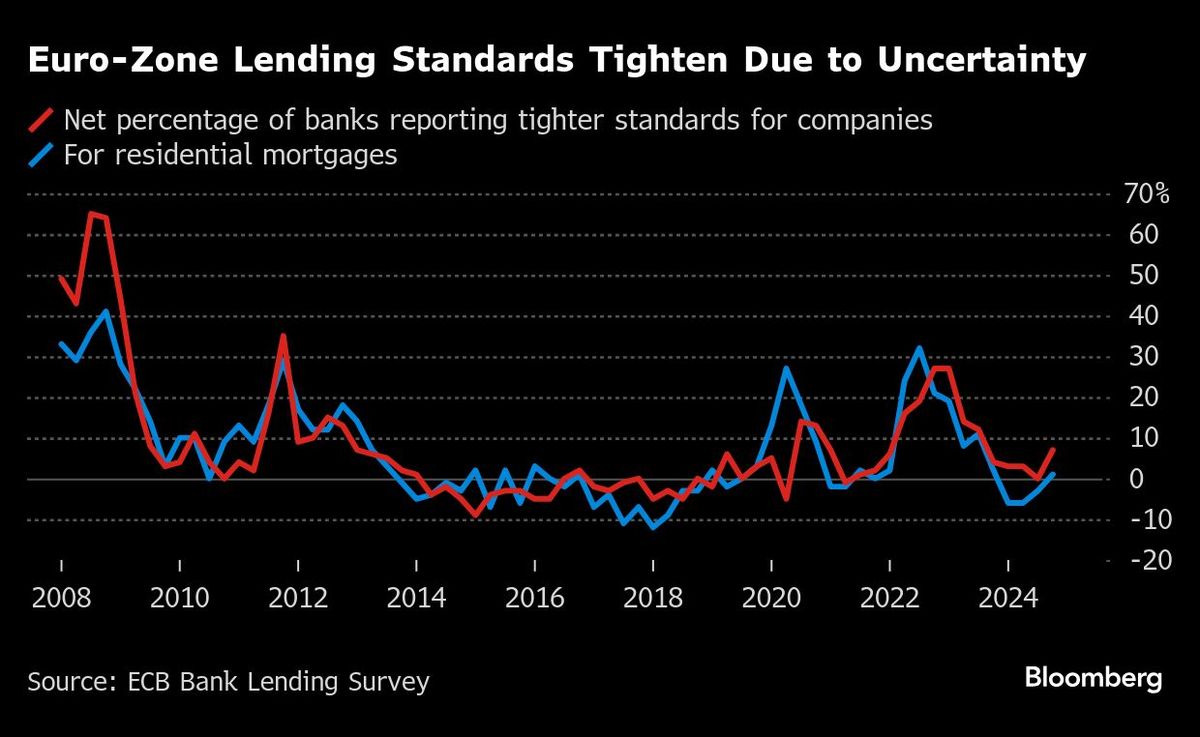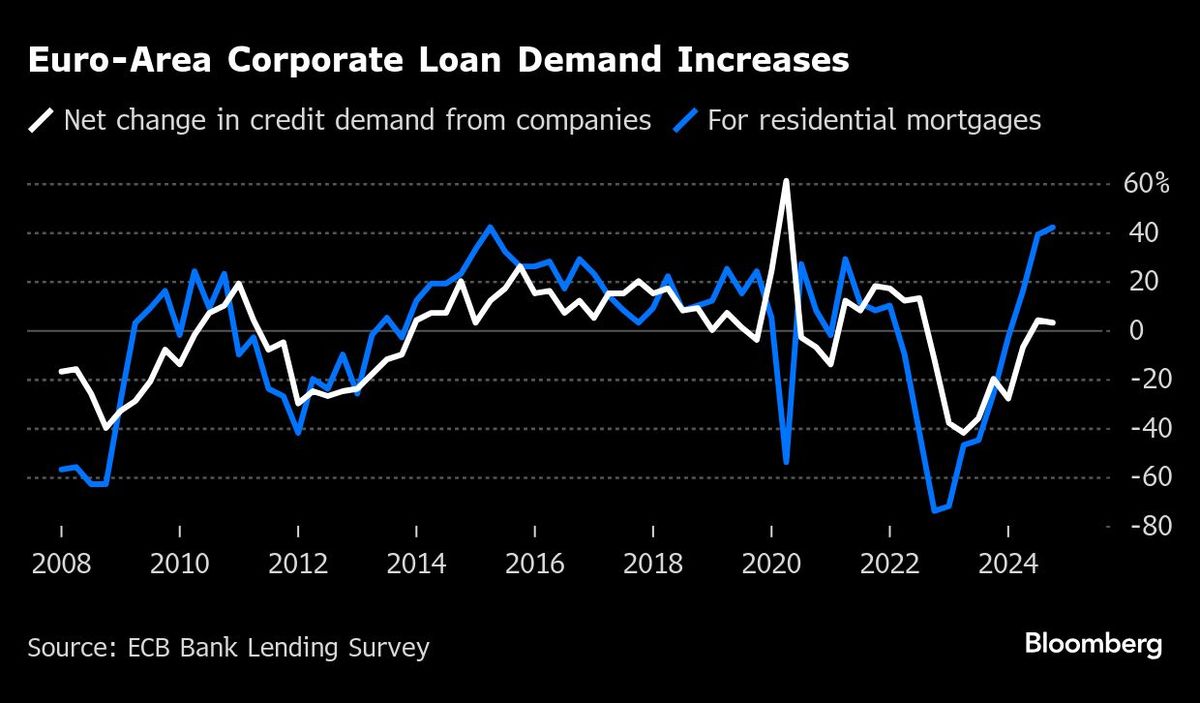
The ECB is based in Frankfurt am Main, Germany.
(Jan 28): Banks in the euro area tightened credit standards for companies by the most since 2023, according to the European Central Bank — dashing hopes for a quick recovery in corporate lending that could support investment.
The trend in the fourth quarter “was mainly owing to banks in Germany and France in an environment of increased political uncertainty, whereas credit standards eased in Italy”, the ECB said Tuesday in its quarterly Bank Lending Survey.
At the same time, the poll showed that demand among firms for loans increased again slightly, though it remained weak, the ECB said.
Lending data is key for the ECB to assess how far to lower borrowing costs. A fifth cut in its deposit rate is widely expected this week amid concern over the economy and expectations that inflation will sustainably return to the 2% target this year.
Data this week will probably show growth in the 20-nation bloc slowed to just 0.1% in the fourth quarter — down from 0.4% in the third — according to a Bloomberg poll.
In an interview late last year, executive board member Isabel Schnabel said the lending survey showed the dampening impact of ECB rate hikes to tame record inflation is fading visibly, warning against rushing further easing and going too far.
According to the ECB’s latest survey, firms’ loan demand “was supported mainly by declining interest rates, with fixed investment having a still-muted impact after its small positive contribution in the previous quarter”.
For the first quarter of 2025, banks forecast a further tightening of credit standards for loans to firms, while they expect demand to remain broadly unchanged.
For mortgages, standards remained unchanged. “The stability of credit standards, after three quarters of easing, was in contrast to the strong net easing that banks had expected in the previous quarter,” the ECB said.
Credit standards tightened further for consumer credit, mainly owing to higher perceived risks.
Uploaded by Arion Yeow
- Gas pipeline blaze: Petronas Gas, Gas Malaysia’s shares open marginally lower after trading halt
- Gas pipeline blaze: MIDF flags potential RM18m impact to Petronas Gas
- Police to look into allegations that digging caused gas pipeline fire
- T7 Global plunges to two-year low as executive deputy chairman departs
- Digital banks in Malaysia urged to re-examine strategies to better serve B40 segment
- Walmart keeps price pressure on suppliers after Beijing pushback — Bloomberg
- Alibaba prepares for flagship AI model release as soon as April, Bloomberg News reports
- US dollar outlook more subdued, but tariffs souring sentiment
- Grab obtains Land Transport Authority licence to operate taxis in Singapore
- US job openings decline in February amid rising economic uncertainty


